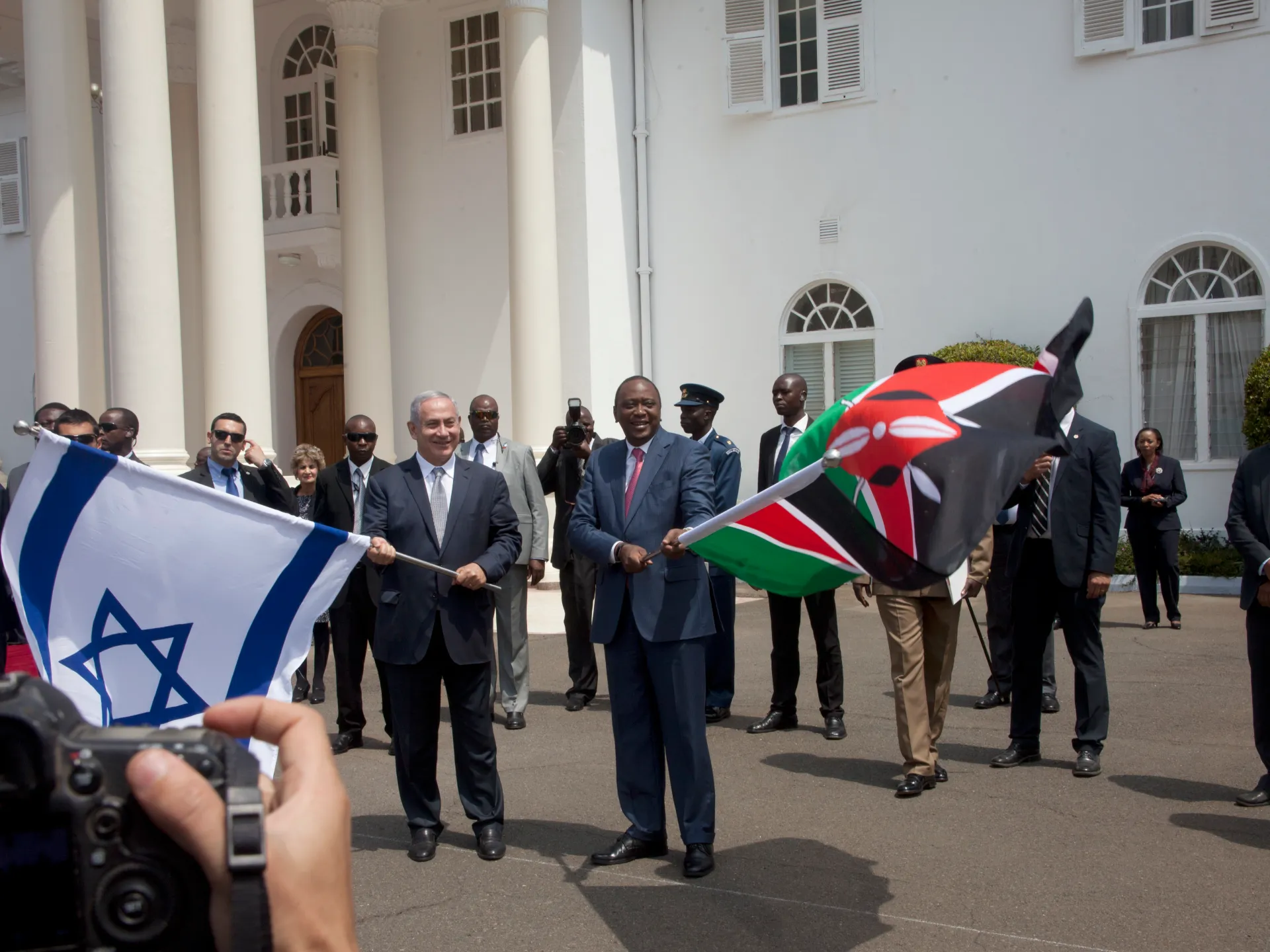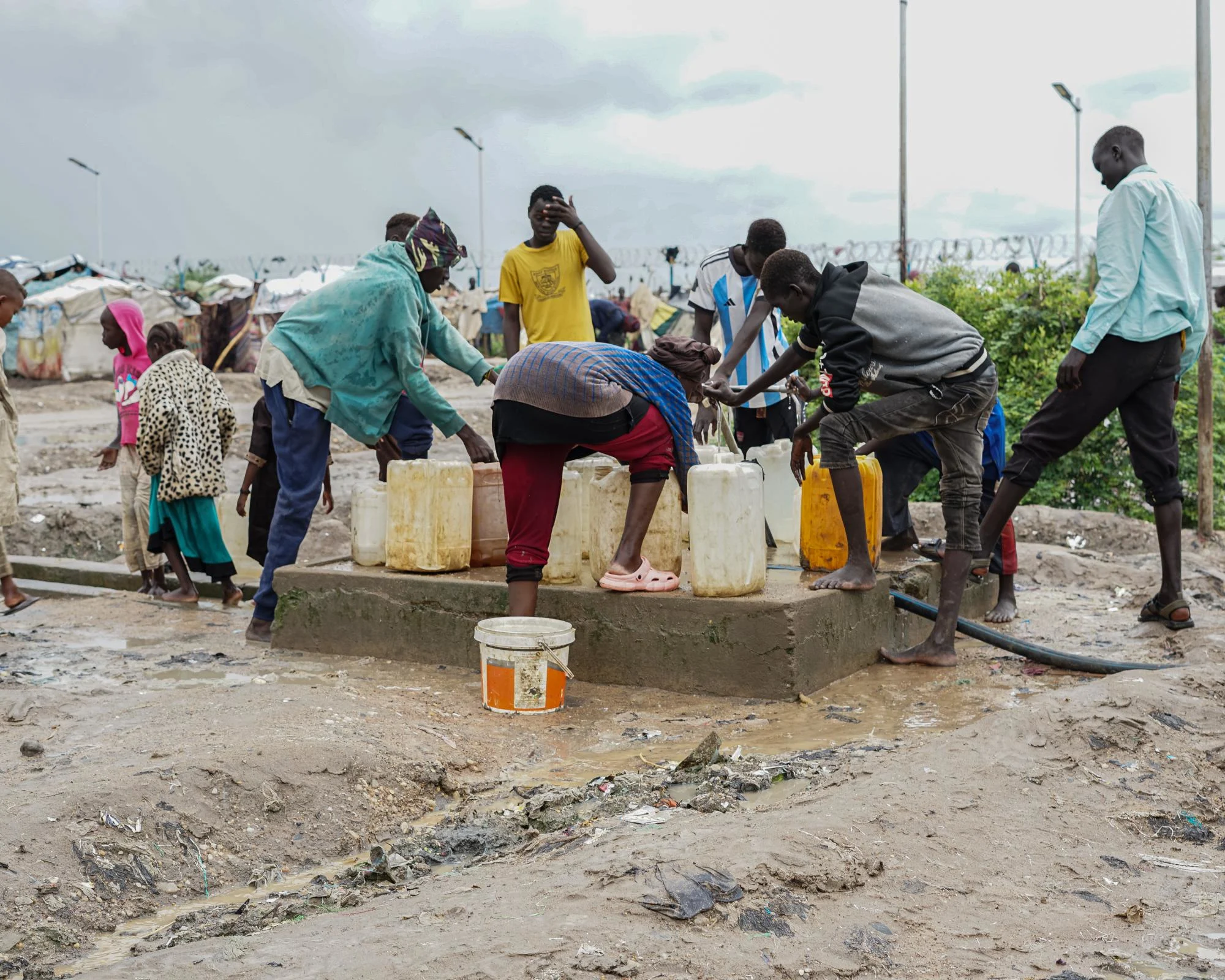By Apps Support,Shola Lawal
Copyright aljazeera

In late August, government officials from Zambia and Israel assembled to celebrate the reopening of the Israeli embassy in Lusaka. It was the first time in 52 years that an Israeli flag would be raised in the Zambian capital, following a long period of severed ties.
“Israel is returning to Zambia. Israel is returning to Africa,” Gideon Saar, the Israeli foreign affairs minister, who had flown into the country for the event and led the ribbon-cutting, declared in a post on X. Undoubtedly, for Saar, this was a true feat, coming at a time when much of the world is isolating Israel due to its devastating onslaught on the Gaza Strip. Israeli media hailed the move as a triumph. One called the small Southern African country Israel’s “next great Africa frontier”.
“Many countries in Africa are lining up for Israel to open an embassy in their capitals, these days,” Saar boasted in a speech at the ceremony. “We choose to begin in Zambia.”
The reopening event appears to be part of a series of calculated moves by Israel to pull African nations to its side at a time when its global standing is damaged, experts say.
Israel’s war on Gaza, labelled in mid-September as a genocide by a United Nations panel of inquiry, has seen Israel kill at least 66,055 Palestinians and level almost every part of the Strip. Some say strengthening ties with Zambia appears to be Israel’s crack at weakening its regional neighbour, South Africa, which is Israel’s fiercest critic in Africa.
“It’s a play of the decades-old divide and rule strategy to erode regional support among states and actors aligned with South Africa,” researcher Faith Mabera of the University of the Witwatersrand told Al Jazeera, adding that the move could undermine Pretoria’s influence within the Southern African Development Community (SADC).
A week before the Zambia event, Israel’s Deputy Foreign Minister, Sharren Haskel, visited Nigeria, where she met with her counterpart. However, Abuja, which has proclaimed support for Palestinians, did not publicise the meeting on social media channels. Two weeks later, Nigeria’s anti-terrorism unit detained Ramzy Abu Ibrahim, a leader of the Palestinian community in Nigeria. It’s unclear what Ibrahim’s offence is, or if the Israeli minister’s visit is connected to his arrest. Nigeria’s foreign ministry spokesperson did not respond to requests for comment.
Haskel went on to South Sudan, a staunch Israel ally, promising aid to the fragile, young country currently caught in armed conflict between President Salva Kiir and sides loyal to First Vice President Riek Machar. Haskel, in a statement, deployed whataboutism, questioning why all eyes were on Gaza when countries like South Sudan also face humanitarian emergencies.
What the diplomat did not mention was that her visit came right as reports leaked of talks between Israeli and South Sudanese officials over controversial plans to forcibly transfer Palestinians from Gaza to the East African country. South Sudan has denied the talks, despite reporting from credible sources like Reuters and The Associated Press news agencies. The forcible transfer of Palestinians under Israel’s ethnic cleansing of Gaza could constitute a war crime.
There are similar talks of autonomous Somaliland hosting expelled Palestinians from Gaza in exchange for official recognition from the United States and Israel. Somalilanders say they want no part in it.
Highs and lows of Africa-Israel ties
Israel’s image in Africa, on average, is poor, experts note, although it’s not for a lack of trying on the Israeli government’s part. A handful of countries respond to its friendly overtures, but the overall majority have firmly kept their distance.
One reason is that Israel does not carry the weight of countries like China and Russia, which are looking to more deeply engage African leaders for their mineral resources and for their votes at the United Nations General Assembly. Israel, in particular, needs support from the global community: between 2015 and 2023, the UNGA passed 154 resolutions against the country, compared with 71 against all other countries combined.
The bigger reason for African countries’ distancing, though, researchers note, is Palestine.
South Africa vocally leads the pack of critics because of its own painful history of apartheid – which Israel was a strong supporter of – and Israel’s continuation of its own apartheid in the occupied Palestinian territories. Nelson Mandela’s infamous 1997 quote about how South Africa’s freedom is incomplete without Palestine’s is a blueprint for Pretoria’s keen protectiveness.
Relations with the continent were not always unfriendly. Israel ingratiated itself with most African nations in the 1950s and 1960s, after they gained independence from colonial powers in waves. At the time, Israeli leaders like David Ben-Gurion and Golda Meir were intent on pushing a narrative of Israel as an ally of “freed people”, historians note, partly to build influence at the UN.
Things turned ugly amid the October 1973 war, when those nations began to see Israel as a pariah encroaching not just on Palestine, but on Egypt, and in effect, on Africa. Uganda was the first to turn from Israel. Within the space of months, more than 20 African nations had abruptly cut ties. The collective effect of that cold disapproval dealt a grave diplomatic blow to Israel. It was unprecedented, and no region has ever again jointly moved so strongly against Israel.
Israel has since pushed for a return to the friendly days with some success. It reopened about 11 embassies across Africa, down from an initial 33 embassies and consulates before 1973. A few of the countries Israel is wooing, such as Nigeria, are members of the Organisation of Islamic Cooperation (OIC), which brings together 57 countries globally with significant Muslim populations, and has repeatedly called for ceasefires in Gaza.
Sudan and Morocco, also part of the OIC, agreed to normalise relations with Israel, following the United Arab Emirates and Bahrain, under the US-brokered 2020 Abraham Accords.
In 2021, Israel attained observer status at the African Union (AU), after two failed attempts. South Africa and Algeria contest the move and say Moussa Faki, the then-chief of the AU Commission, the continental body’s executive branch, took the decision unilaterally. Palestine, on the other hand, became an observer in 2013, allowing it to participate in AU summits for longer.
From aid to arms
Israel has particularly set eyes on East Africa, especially Ethiopia, home to 160,000 Ethiopian Jews, some of whom Israel secretly airlifted in 1991 amid the Ethiopian civil war. In 2016, Prime Minister Benjamin Netanyahu toured East Africa, visiting Uganda, Kenya, Rwanda and Ethiopia. The Israeli aid agency, Mashav, sent aid worth $45.5m to Ethiopia, Uganda, Tanzania, South Sudan and Kenya between 2009 and 2021, according to data from the Organisation for Economic Co-operation and Development. Aid often went towards agriculture, water and healthcare.
Israeli aid to African countries does not represent a major source of financing. Ethiopia, which receives most Israeli funding, received $1.3bn in US aid in 2024, for example. The World Bank, Germany and the European Union have become its biggest funders since the US cut back on foreign assistance.
Results, at least for UN resolutions, have been mixed, researchers note, with some East African nations accepting funds while not committing to consistent support of Israel, because of the general pro-Palestine policy of the AU.
Ethiopia, for one, according to a 2024 study by Ben-Gurion University researcher Yaron Salman, voted several times against Israel at the UN between 2012 and 2021, despite receiving more than half of its aid assistance to Africa around the same time.
Only South Sudan, the study noted, consistently stood by Israel. Both countries formed relations early in South Sudan’s history, as Israel backed independence fighters against Sudan, which South Sudan broke away from in 2011. This backing goes back decades with Israel’s Mossad agency first providing military support to rebel fighters in the 1960s. Haim Koren, a former Israeli ambassador to South Sudan, wrote in a 2019 analysis piece for the Moshe Dayan Center for Middle Eastern and African Studies that Israel supported the secession forces to target Sudan – and generally, the Arab region. Reports as far back as 1994 noted Israeli arms being transferred to South Sudanese rebels, and in 2016, a UN panel of experts concluded that Israeli weapons were fuelling the civil war that broke out immediately after South Sudan’s independence.
South Sudan’s foreign ministry did not respond to requests for comment. In a statement in August, the ministry said claims of a forcible transfer of Palestinians to the country are “baseless and do not reflect the official position or policy” of South Sudan.
South Sudanese democracy activist Mahmoud Akot told Al Jazeera that history aside, any attempts to transfer Palestinians to the country would be met with fierce opposition because of the country’s own challenges.
“It’s hard for the government to acknowledge this publicly, let alone try to convince people to accept it,” Akot said. “I think the deal will not be fruitful.”
Other African nations – even South Africa – have not been immune to Israel’s arms appeal, despite support for Palestine. Cameroon, Chad, Equatorial Guinea, Lesotho, Nigeria, Rwanda, the Seychelles, South Africa and Uganda all bought weapons from Israel between 2006 and 2010, according to the Stockholm International Peace Research Institute (SIPRI). Many continue to trade with Israel, buying everything from surveillance technologies and agro-tech equipment to consumer goods.
“By embedding itself in African security structures, Israel not only profits from instability but also gains partners less likely to challenge its brutal military occupation and its genocidal atrocities,” South African analyst Reneva Fourie told Al Jazeera. “These partnerships normalise Israel as a counterterrorism ally while deflecting attention from the fact that it is the perpetrator of state terror against Palestinians.”
Is Israel winning the diplomacy game?
After it began its war on Gaza in October 2023, whatever fragile support Israel had on the continent appeared to largely collapse.
In a landmark case, South Africa accused Israel of genocide in Gaza at the International Court of Justice (ICJ) in December 2023, and the AU, early on in the war, was unequivocal in its condemnation of Israel and its support for Palestinian statehood.
A few embarrassing scenarios illustrate Israel’s further fall from grace. In April this year, the Israeli ambassador to Ethiopia, Avraham Nigusse, was thrown out of an AU event commemorating the 30th anniversary of the genocide in Rwanda, which was being held at the AU headquarters in Addis Ababa. Nigusse, of Ethiopian descent, fumed on social media, calling the move “outrageous”. The order reportedly came from the AU Commission chief, the no-nonsense Mahamoud Ali Youssouf of Djibouti. As foreign minister, Youssouf’s criticism of Western nations’ inability to stop Israel’s war on Gaza was blistering.
One unnamed diplomat, speaking to AP after the incident in Addis Ababa, said Nigusse was removed because Israel has now lost the observer status it struggled to get.
Sharon Bar-li, deputy director of Israel’s foreign ministry’s Africa department, triggered the AU to first suspend Israel in February 2023, when she attended a high-level meeting of African leaders that only the Israeli ambassador to the AU had been invited to, according to the bloc’s statement. Bar-li was unceremoniously expelled from the meeting, as seen in now viral clips. Then-AU Commission chief Faki confirmed a day after the incident that the bloc had already suspended Israel’s status, which South Africa and Algeria long advocated for. The bloc did not clarify when the suspension occurred, and has not publicly released more information on the issue.
Even as most of Africa stands resolute with Palestine, researcher Fourie noted that Israel is winning somewhat, at least with new friends like Zambia, and those Arab countries like Morocco which have normalised ties with the country. Zambia and South Sudan were part of six African countries that abstained at the first UN resolution vote condemning Israel’s assault in November 2023, a month after the war on Gaza began. Cameroon, Ethiopia, Malawi and Equatorial Guinea did the same. Other African countries voted in support.
Lusaka defaulted on foreign debt in 2020 and is desperate for investment. Israel is thus exploiting this context to insert itself deeper into the Southern Africa region, Fourie said. It’s unclear yet if Israel has delivered major aid funds to Zambia, but Lusaka received a heart-lung monitoring machine in August from Israeli humanitarian organisation Save a Child’s Heart. Zambian agriculture students also travel on sponsored training programmes to the Naqab Desert (Negev in Hebrew) region. Zambia’s foreign ministry did not respond to a request for comment.
Israel’s government press office and foreign affairs office did not respond to requests for comments for this story.
For Fourie, South Africa has a leading role in countering Israel’s influence on the continent. For that, she said, African countries need to deepen economic ties and protect themselves from foreign influence in the guise of aid. Fourie said these countries also must remind themselves that backing Palestine is the moral response to the decades of imperialism Africa suffered.
Still, Muhammad Desai, co-founder of the Johannesburg-based solidarity group, Africa4Palestine, insists that Israel’s “desperate” strategy is already being diluted by ordinary citizens.
“Solidarity movements across the continent in support of the Palestinian people have grown exponentially,” in recent months, Desai said.
“We are confident that those governments or politicians that may currently be enticed by Israeli overtures will be held accountable by their people. Ultimately, Israel’s efforts on the African continent will fail.”



